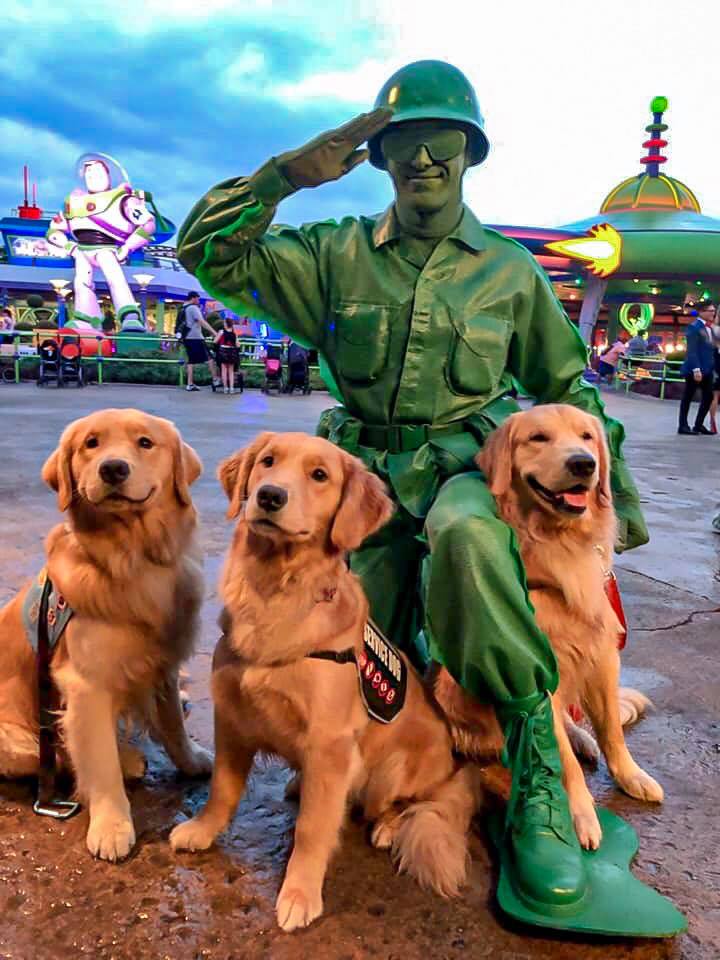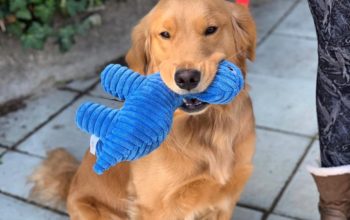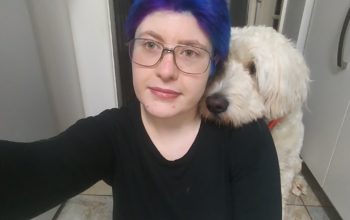10 Things We Hear from the Public
BEING OUT WITH A DOG IN A VEST FEATURING THE FAMOUS WORDS “ASSISTANCE DOG” BRINGS A LOT OF COMMENTS AND QUESTIONS FROM THE GENERAL PUBLIC. SOME SMART, SOME NOT SO SMART.
Author: Elmiri Fox
Here are the 10 most popular questions we find asked! You might get a sense of why it can be so challenging for us to respond to the general public without being sarcastic when we receive these questions/comments on a frequent basis!
- “Is he/she friendly, does he/she bite?”
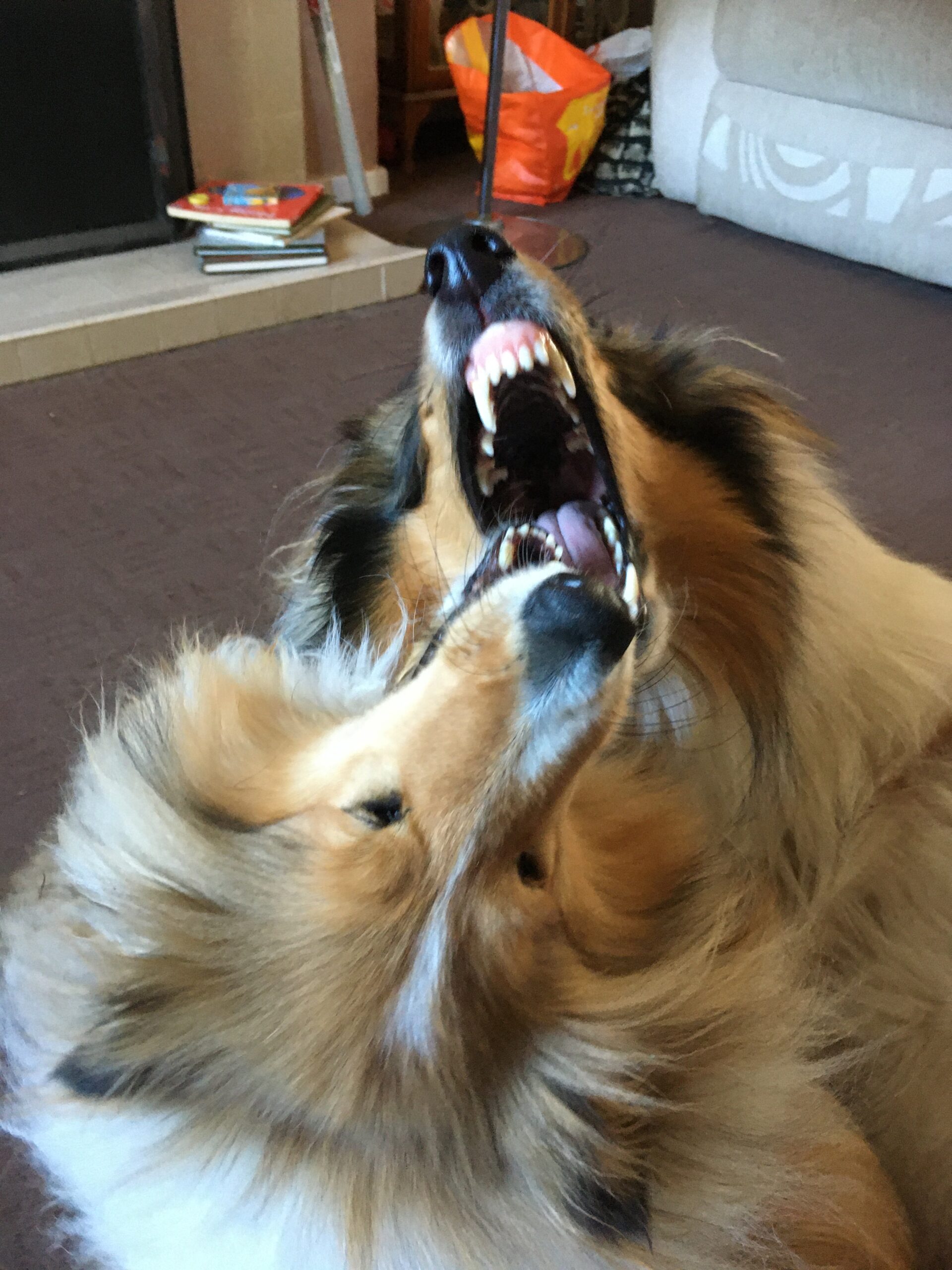
Does my highly trained working dog that has to go into places with high foot traffic, close quarters, scary noises, ignores sounds, people, dogs, children, animals and more. Is he/she friendly?
Well of course he/she is friendly! But that doesn’t mean you can fuss ’em 😉
This unfortunately is the only reason people ask this question. By asking this they’re actually questioning whether it’s safe to pet your dog, not whether they are allowed to. They unfortunately assume the second often. Most handlers have made the error in thinking this question is the full question, and then switch off…only to find someone fussing their dog!
Appropriate responses to deter petting;
“Yes they are friendly, BUT he/she is working right now”
“No he/she doesn’t bite, BUT please don’t distract him/her”
“I’d prefer it if you didn’t distract him/her, but he/she is friendly and doesn’t bite. Thank you”.
If you’re okay with the dog being fussed;
“Yes, BUT it’s often inappropriate to fuss a working dog”
- “But you’re not blind”
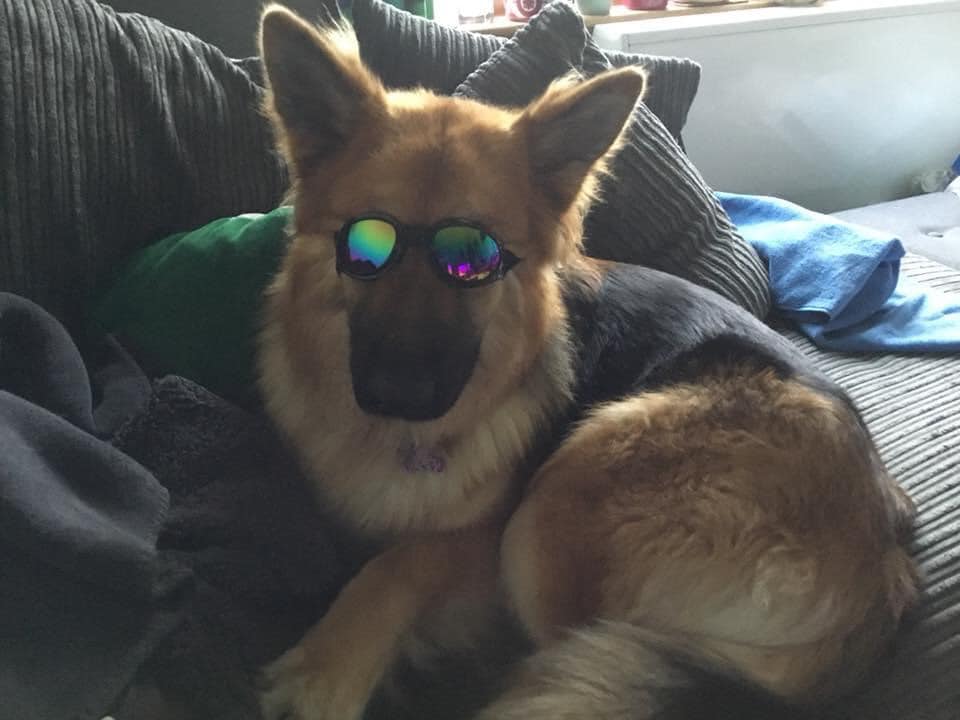
This always brings on the sensation of deer caught in headlights. I mean what are we supposed to say…?
Blindness can be difficult to visually see on someone, so it’s amazing people make this assumption when they usually have zero experience with guide dogs or people who are partially sighted or blind.
This question isn’t limited to people with invisible disabilities either but for those with very visible ones too. It appears not to matter.
Many people don’t realise how intrusive this question is, or how rude. For one, you’re either enquiring about the individual’s disability and questioning it’s legality, or you’re assuming the person isn’t disabled at all. Neither options constitute nice or polite conversation between two complete strangers. Sometimes we end up with questions like “but you’re not wearing sunglasses” or “you don’t look blind” which are even more bizarre, especially if your sight is not affected at all.
While at the theatre with her partner and of course with Sparrow, Dory Adelie encountered quite a question from a complete stranger on this topic as they walked past: “so which one of you is blind then??” At which point her partner muttered “the dog”. What exactly are we supposed to say to that?! Even if one of us was visually impaired, are we required to put our hand up and go “that’s me!!!”?
Appropriate responses;
“No I’m not but I could easily be visually impaired, it is actually near impossible to spot on many individuals.”
“I’m not comfortable disclosing my medical information”
Appropriate question from the general public;
….. Sorry guys, I tried to spin this in an appropriate way, but I don’t think I can. You either enquire if assistance dogs are for more than the blind (again still making assumptions on the person not being blind), or you’re straight up asking a broad question which isn’t appropriate for a passing conversation. We’re not here to provide in depth information to everyone unfortunately.
- “But it’s not a Labrador”
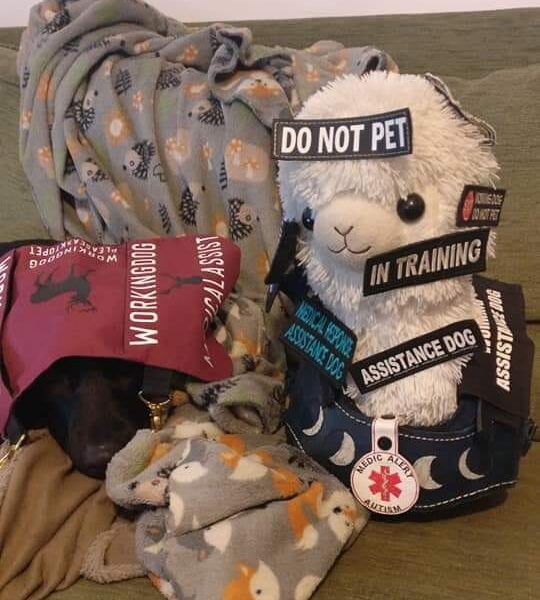
@avalon_the_assistancedog
We commend your ability to recognise a dog breed. Some aren’t aware that yellow and chocolate Labradors are the same breed. Did you know that Labrador Retrievers and Golden Retrievers are from the same ancestor? The St John’s Water Dog. That said they’re all just dogs. Dogs are part of the canidae family which includes dogs, wolves, and foxes.
Any breed of dog is capable of being trained to the standards of an assistance dog. Some are more capable than others. Size and temperament are the deciding factors in these instances which is why Labradors and Golden Retrievers are the most common. That said, poodles are becoming more common due to their non shedding coat (poodles are not fully hypoallergenic read here for more information on this). Other breeds are chosen specifically for mobility, coat, scent work (such as spaniels), smaller size, or simply because it’s a preferred breed to the owner.
There is also the fact that a dog doesn’t need to be a pure bred; mutts and mongrels are perfectly acceptable. It just needs to healthy.
Appropriate responses;
“He/she’s a (breed name). Any legal dog breed is capable of being an assistance dog, some more than others”.
Appropriate questions from the general public;
“What breed is he/she?”
Note, also don’t argue with the person about what breed their dog is or say “it doesn’t look like a ____________”. In all honesty, we barely have the energy to do the essentials in life, let alone debate the breed of our dog when we know for sure.
I want to point out that it can also be offensive to say “I didn’t know (such breed) could be assistance dogs”. It can come across as if you’re accusing the handler of faking an assistance dog. We’re very passionate about our dogs and what they’ve achieved with us and can get defensive at times unintentionally, this can also be exacerbated by the persons disability at times. So responses to this sort of question can end up being short and come across snappy.
- “Why has he/she got a muzzle on?”
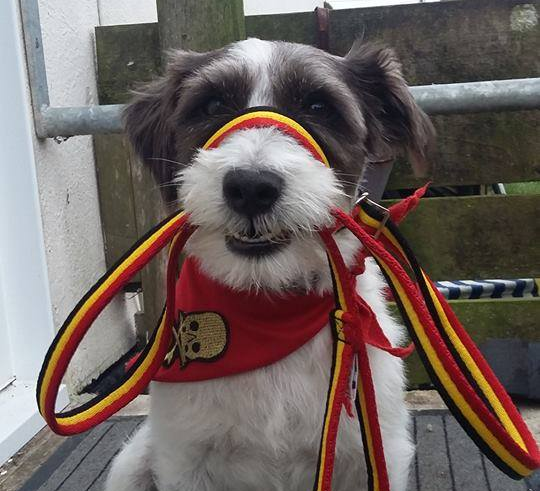
Credit of photo to @lifewith2tails
Short answer? It’s probably not a muzzle at all.
Long answer? It’s a training tool referred to as a head collar. It allows the handler to have more control of the dogs direction and some dogs are able to function better with one. They do not under any circumstances act as a device to limit the capabilities of the dogs jaw. They can still bite in a head collar, play with toys, drink, pant, yawn, bark, eat and more.
A good muzzle (e.g. Basket muzzle) will allow a dog to drink, pant, yawn, bark, some capability of eating in the form of treats fed through gaps in the muzzle. Real muzzles are used in many situations and for many reasons, including but not limited to: aggressive or reactive dogs (to prevent them from injuring others), on racing dogs to prevent them nipping each other in excitement (this is rarely an aggressive issue), on dogs that like to chase and kill wildlife, during grooming to protect the dog groomer, on dogs that eat food off the floor which can be deadly to them, poop eaters… gross, on dogs which are in pain to allow treatment and in certain countries where muzzle wearing is a legal requirement in public.
Here are some pictures to differentiate between the two.
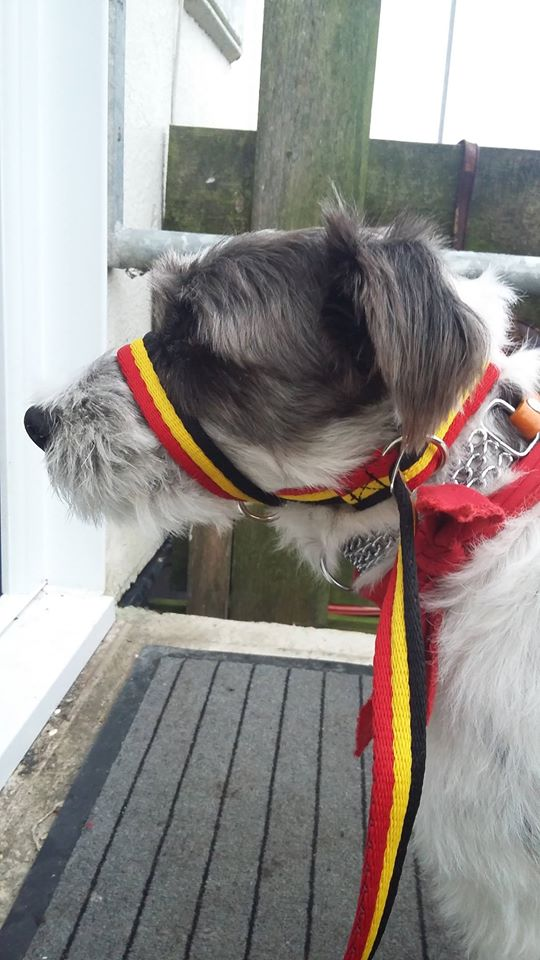
Photo on the left is of a figure 8 head collar 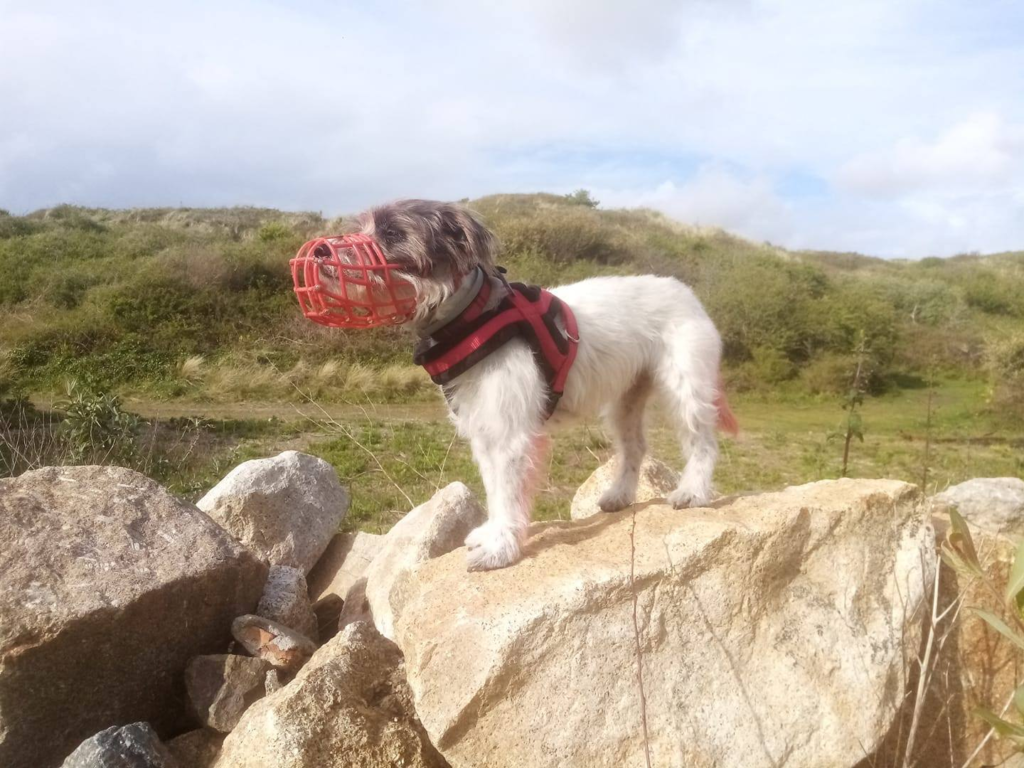
Photo on the right is of a muzzle
Photo credit to @lifewith2tails
Muzzles can be essential for the well-being of any dog and everyone should consider training their dog to be comfortable with wearing one. You never know when it is out of your control and a muzzle is forced onto your dog with or without your consent. A dog warden may muzzle your dog if found, a vet may refuse to treat your dog until it is muzzled no matter it’s temperament. You don’t really want that to be the first time your dog has ever encountered a muzzle!
- “He/she must love to have fusses”
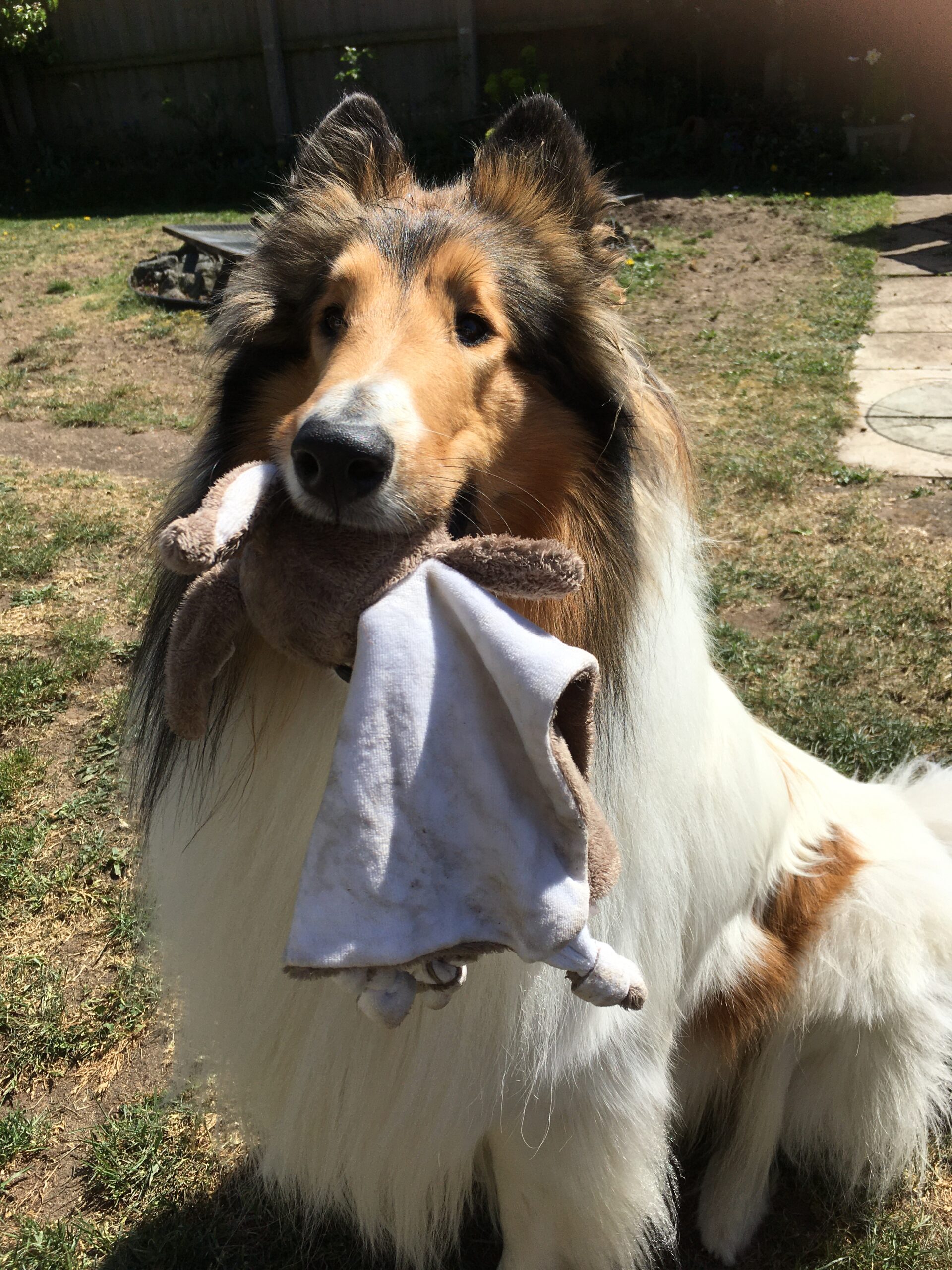
Again, this is the person inadvertently asking to fuss the dog. They may even already be reaching down to fuss it.
There are dogs out there that hate to be fussed. More so, there are dogs out there that hate to be fussed by complete strangers.
Some examples from our site owners;
Eli – loves to snuggle and cuddle all day but does not like to be touched or petted by strangers. He often puts up with it but will jump away if the person goes as if to pick him up as he is small enough.
Buckley – likes a fuss, laying close to owner but not keen on cuddling. Is super excited for attention from strangers, is capable of ignoring them though.
Sparrow – loves a fuss and snuggle, turns into a neck scarf at night. Loves to meet new people and receive love from them, not concerned with zero attention though. However, if mid-tasking she’s not sure about it and will usually duck her head as they are generally invading her (and her handler’s) space uninvited.
Prince Greening Grandmalion – loves a good scruff up of the fur or rubbing against legs, doesn’t like to cuddle, prefers to sleep in crate than on the bed. Likes to meet new people and receive fusses, not concerned with zero attention though.
The old saying of ‘dogs love a good fuss’ is a lie. Dogs do not naturally like to be fussed or cuddled. We condition them to enjoy it.
Appropriate responses;
“Sorry he/she is working right now”
- “I use to have a (insert dog breed) but it’s dead now”
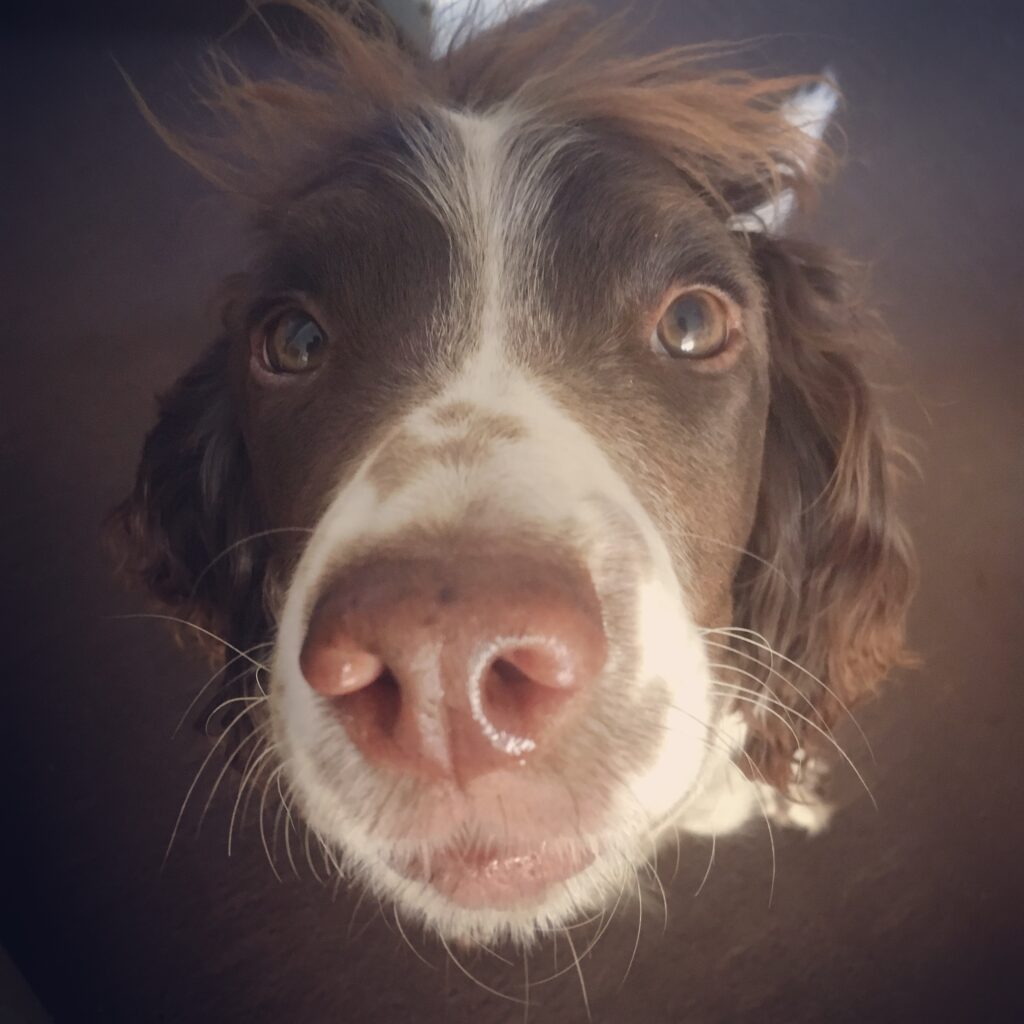
This is probably the most awkward moment for any dog owner. As assistance dog handlers, we tend to get stopped often to ask questions. I’m going to say this honestly, because it’s what every assistance dog handler is thinking. We get stopped in the middle of doing our jobs, we’re not out for a stroll, we’re doing jobs and tasks that are required to function. So here it is… we honestly don’t care about what dog you’ve owned which is now dead. We’re sorry for your loss, but we don’t go up to you when you’re with your parents and say “oh my parents are dead now”. Yes they’re humans and we’re talking about dogs but we tend to see them as family as I’m sure the individuals did of their now dead pets. It also isn’t exactly a nice thing for anyone to think about and can be a very sensitive topic for a lot of handlers, especially when our dogs represent a lot more than being a pet – they can be a lifeline – but this sort of comment is impossible to ignore once you’ve heard it.
The remark leaves no space for an appropriate answer. What do you say in response to that? Sorry for your loss? We’re not at a wake or a funeral.
- “You must be devastated when he/she goes to their new owner”
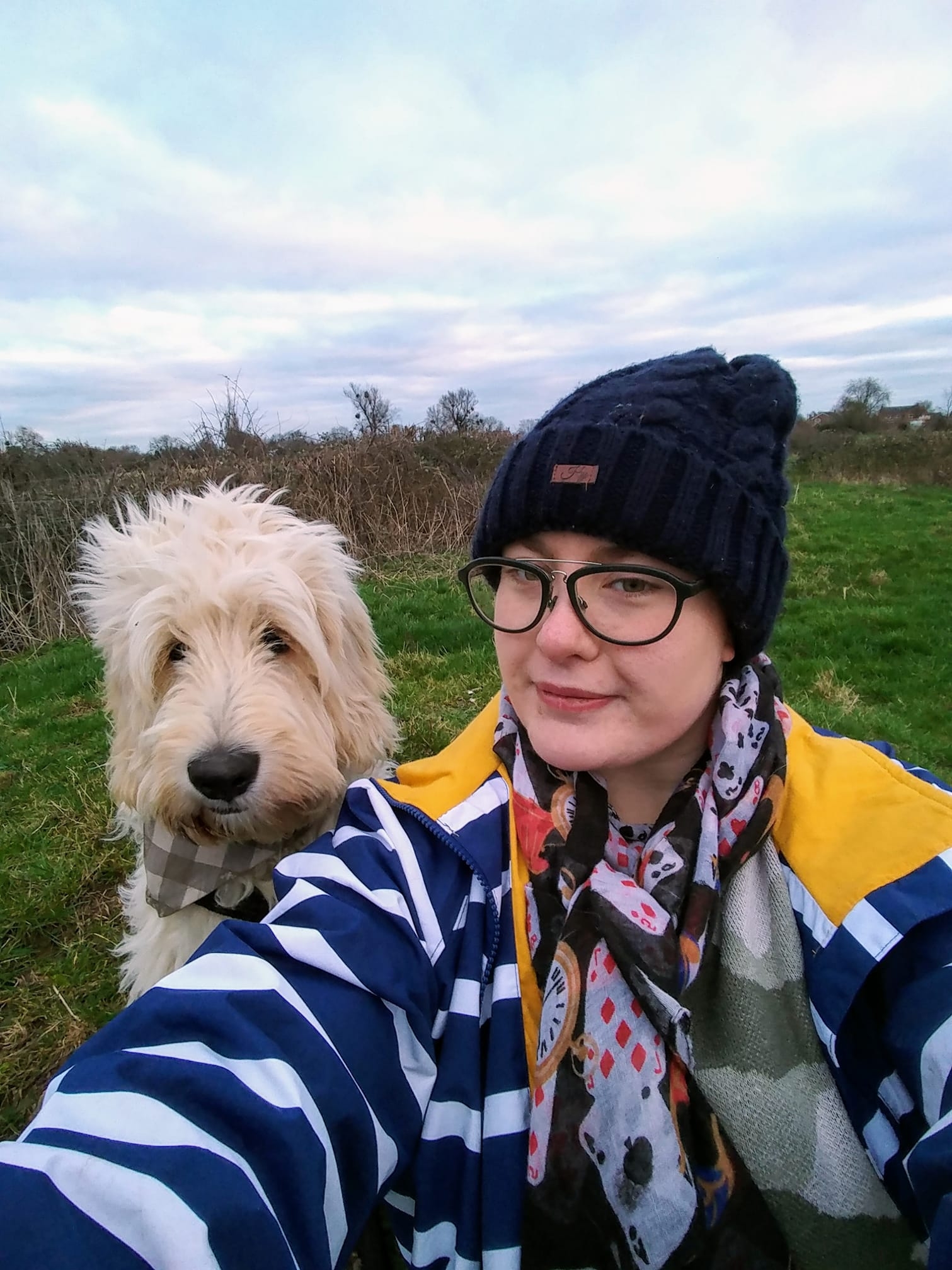
Shocker here. In case you didn’t know, there are dog which are trained and then go off to someone else (their “match”) so you may see an assistance dog walking around with a person, in the same way our dogs walk around with us. But by saying this, you are assuming the person is not disabled. This is rude and presumptuous, and is not necessary to comment on, even if the dog is still in training. It is very difficult for us to answer this honestly (i.e. “they’re actually my assistance dog”) knowing we will then receive the inevitable stare while someone tries to work out what is wrong with us. Or the dreaded questions which we then have to dodge when all we wanted to do was buy our essentials and get the hell home!
- “What does he/she do?”
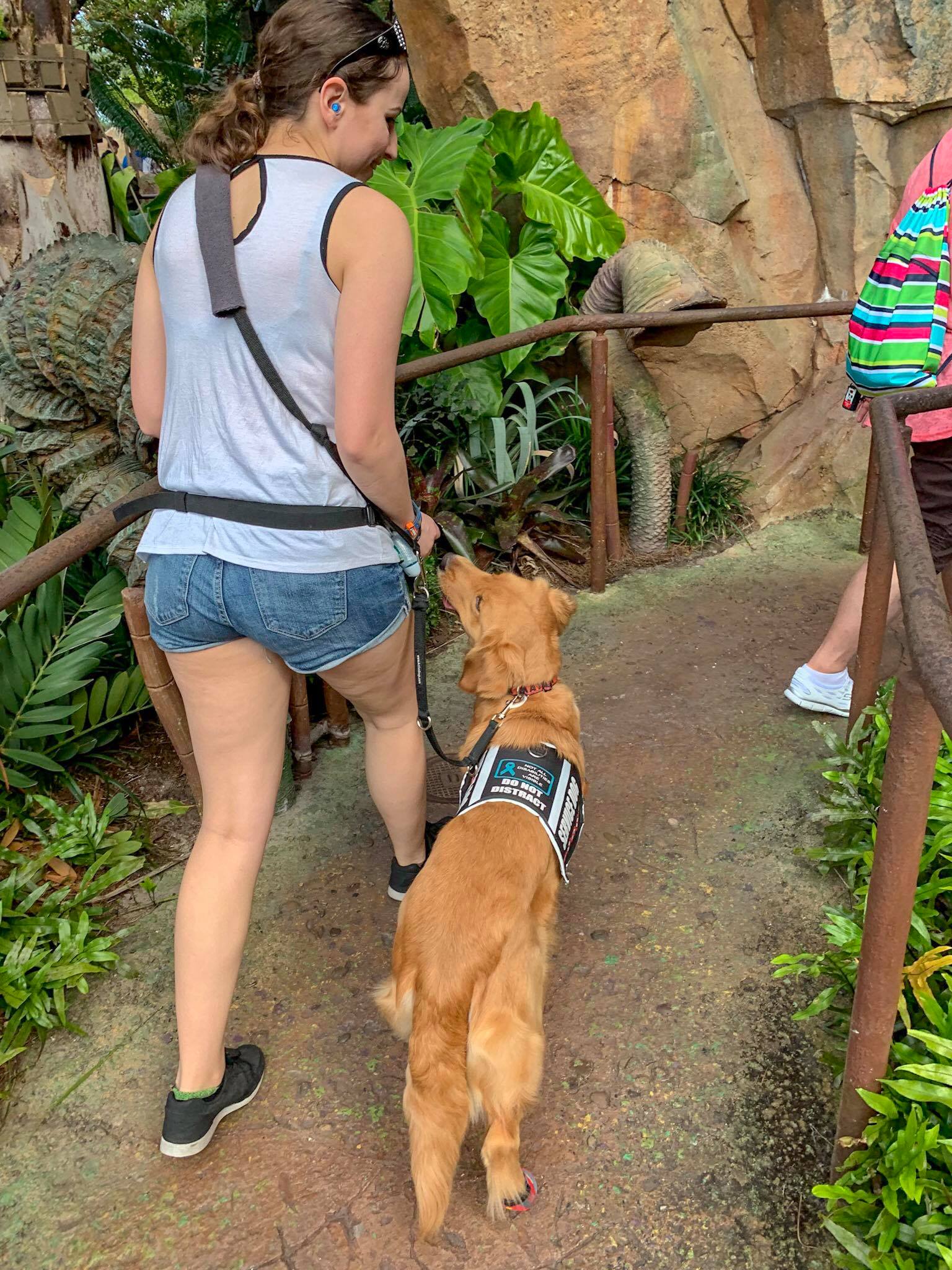
By asking this question you’re actually asking what is the individual’s disability. And in case you weren’t sure – THAT IS RUDE. We don’t ask about your medical conditions and we don’t expect to be quizzed about ours.
The dogs help us. They’re trained to assist in what ever way is appropriate to a symptom of our disability. If you wanted to ask this out of curiosity to learn about assistance dogs, please accept our first answer and if we don’t respond, we are likely busy in the middle of something so leave it. We are not interested in going back and forth with you asking more and more questions with the hope of getting a more specific answer, and us trying not to be rude but also not wanting to give you our medical history. This happens far too frequently, and it is draining. If you want to learn about assistance dogs, google them.
- “What is he/she for?”
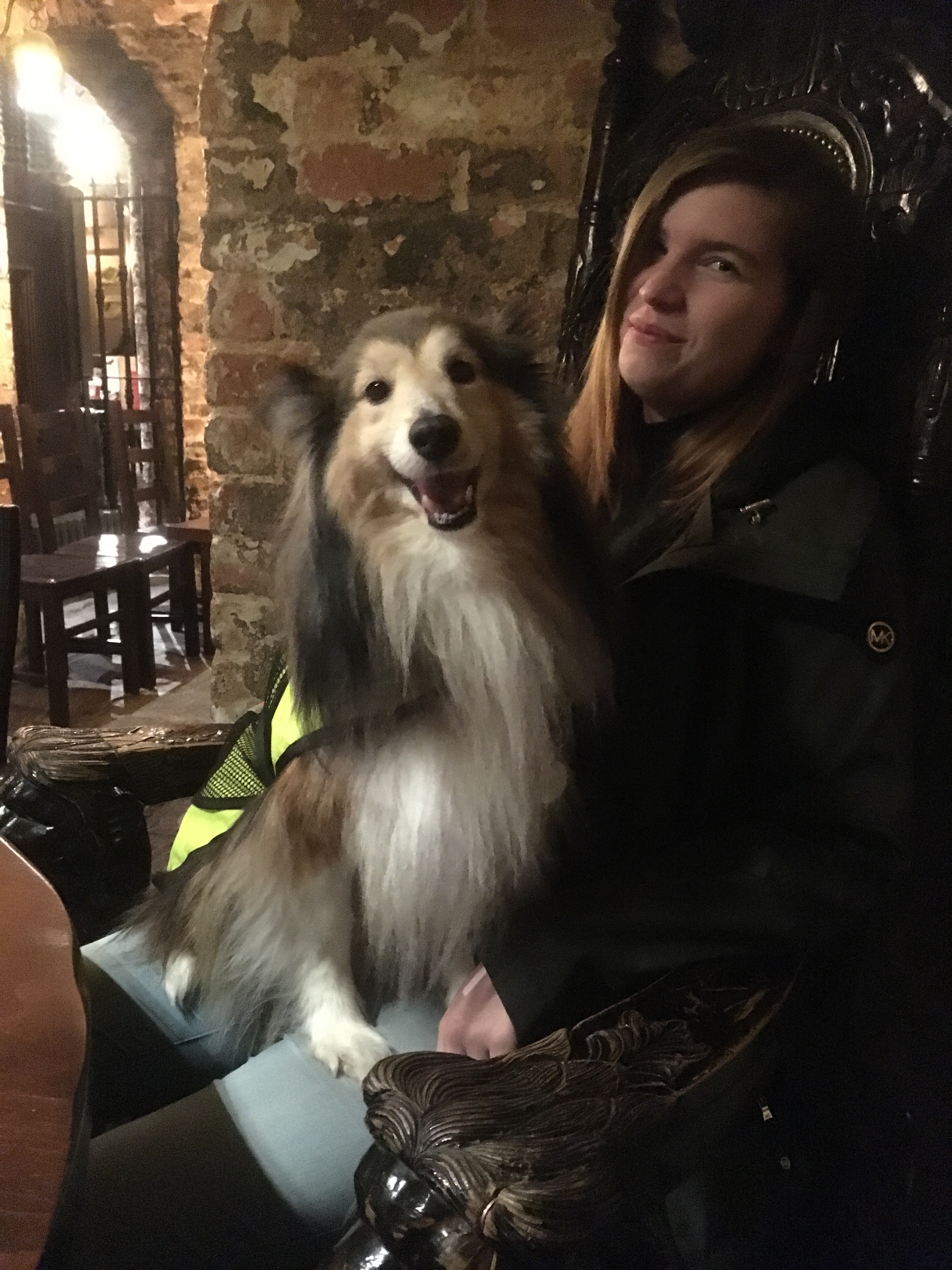
This is straight up asking us what our disability is. Just because you referred to the dog doesn’t make it any less inappropriate. Sadly the question doesn’t even register as being as intrusive as it actually is. But be warned, you may well be blanked completely if you ask this.
- “I know we’re not meant to touch, but I can’t resist!”
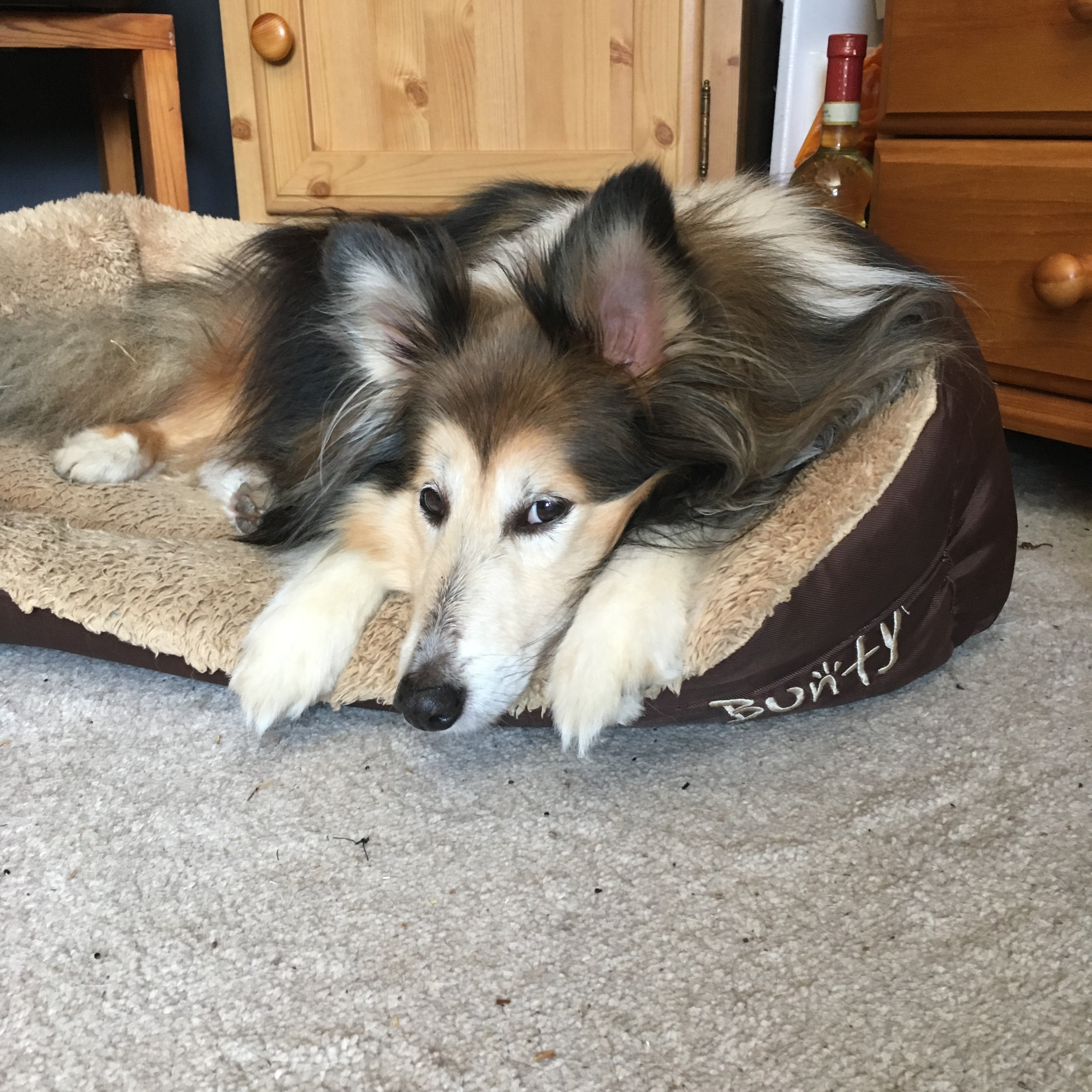
But you can resist! If my dog can resist food, barking, toys and fuss then you – a human being with higher thought capabilities – can resist touching it like a new-born child discovering the world.
Appropriate responses;
“Sorry, please don’t touch, he/she is working right now and that is distracting him/her”
HERE’S SOME BONUS CONTENT FOR YOU ALL!
“Does he/she ever get to be a dog?”
That’s like asking
if I get to be a human?
Unlike humans, dogs are incapable of the realisation that work equals food on
the table, warmth in the home, toys to play with, and health care.
Dogs think that food will be on the table no matter what, that new toys are just something humans provide, warmth is normal, and health care isn’t even something that registers. Work is not a concept a dog is capable of on a wider thought process.
When dogs do what we class as work they think more instantly. Is this fun? Do I get something out of this now or very soon? It is instantly REWARDING to be here?
Working dogs enjoy their jobs, agility dogs love the interaction with the handler and the joy of doing the next trick, fly ball dogs love the thrill of the jobs and the reward of the ball, dock divers love the water and the handler interaction. The key component here is human interaction and joy.
Some will say ‘my dog gets plenty of down time at home or when off duty’. For me it’s ‘my dog loves his job, this is him being a dog’. That said, every healthy working dog of any type of work, agility, dock diving, assistance, do have down time. It’s unhealthy to do the same thing over and over again. It requires a lot of mental strength.
“It’s great that you’re training her/him for someone who needs it”
It is great! It really is! But you’re assuming this dog isn’t for me. Perhaps even assuming that disabled people can’t train dogs. Many people assume that disabled people can’t even keep a pet dog or do sports with them like flyball, agility, and more. For some disabled people this can be a distant dream, but for many it’s a great motivation in life to know that you’re not as limited as the word “disabled” makes you feel at times.
This is often another ‘invisible illness’ situation. People don’t realise that the majority of disabled people don’t actually look disabled. Deaf people don’t look disabled, people with cancer don’t always look ill, people with diabetes don’t look disabled either. Then there are psychiatric disabilities, which believe it or not is actually a physical disability because it affects you PHYSICALLY. It affects your ability to walk around a shop, to do self care, to communicate correctly and more.
As the saying goes, don’t judge a book by it’s cover. But this book is a personal diary so you don’t need to check out the personal details of this one. Just leave it be.
“I wish I could bring my dog here, I miss him/her”
Believe it or not but we don’t actually enjoy having our dogs with us 24/7.
It’s far more stressful than you would think. We have access issues regularly which puts us on edge when entering places for fear of a conflict. Although not common we do occasionally get shouted at or threatened. Also, the fact that we have our dog with us means we are also disabled. So don’t even get anywhere near commenting “I wish I was like that so I could bring my dog” or “maybe I could do x, y or z so I could bring my dog with me”, even under your breath. Yes, it has happened. You will not like the reaction you get.
“What’s his/her temperament like?”
This is just a bit of a nonsense question. This one was a fond memory of Elmiri Fox. There she was, standing in Tesco’s waiting for a friend the other side of the tills, when a lady walks up and compliments Prince Greening Grandmalion “What a lovely dog!” Elmiri offered a polite smile and a quiet thank you with brief eye contact so as not to encourage the conversation to continue. When the lady politely says “what is his temperament like?”.
Now she was massively confused by the comment and Elmiri is well known for her sarcastic streak. Internally she’s saying “Well he’s actually incredibly aggressive, we’re actually on the run from the police. MI6 is on our tail!” but she reins it in! Holds her tongue and fights a smirk whilst simply saying “he’s lovely, loves people, loves dogs, loves everything”.
What temperament are people expecting from an assistance dog exactly?
Lets hear it then! What is it you hear most often from the public?
Post it in the comments below, or submit it on the following form and we’ll do a separate post of all the things we hear!


